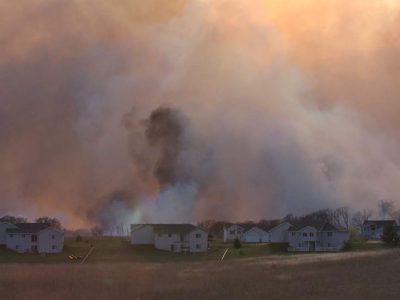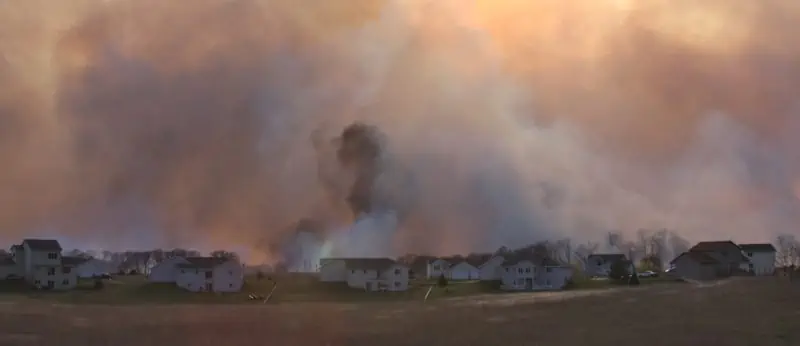Mapping Vulnerable Populations in California to Climate-Related Hazards
Drs. Miriam Marlier, UCLA Assistant Professor and C-Solutions Faculty Associate, and Michael Jerrett, UCLA Professor and C-Solutions Co-Director, have been awarded research funding under the new NASA ROSES Equity and Environmental Justice (EEJ) program that aims to advance progress on equity and environmental justice domestically through the application of Earth science, geospatial, and socioeconomic information. Dr. Marlier, the project’s Principal Investigator (PI), and colleagues will estimate the human health impacts from climate change, specifically, wildfire-related smoke and extreme heat on community health. This study will then incorporate socioeconomic characteristics to assess vulnerability to these climate hazards, particularly in resource-poor communities that are less able to adapt to the impacts of climate change. Dr. Marlier’s project will produce a publicly available mapping tool that will show populations that are more vulnerable to climate related hazards with the goal of promoting health equity in these communities. This research will help California communities enhance their climate resilience strategies and target effective interventions to those most affected by our rapidly changing climate.
Assessment of Wildland Fire-Related Environmental Exposure Issues Impacting Vulnerable Populations in California
C-Solutions faculty have also been awarded a second research funding opportunity under the NASA ROSES EEJ program as collaborators on a project led by Joseph Wilkins from Howard University. In this project, Drs. Wilkins, Marlier, and Jerrett will map wildfire emissions in wildland-urban interface (WUI). Communities located in the WUI face greater risk from wildfire emissions due to their proximity to wildland areas (e.g. forests, grasslands, etc). The team will examine the wildfire risk alongside socioeconomic characteristics, as lower-income populations are more vulnerable to health problems resulting from smoke exposure due to limited access to resources. This project will aid in assessing risk of exposure for vulnerable communities and will inform wildfire management and environmental justice policy at the WUI.
Learn more about these and other NASA environmental justice projects using this link.







